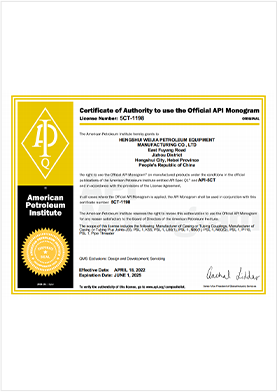- Afrikaans
- Albanian
- Amharic
- Arabic
- Armenian
- Azerbaijani
- Basque
- Belarusian
- Bengali
- Bosnian
- Bulgarian
- Catalan
- Cebuano
- Corsican
- Croatian
- Czech
- Danish
- Dutch
- English
- Esperanto
- Estonian
- Finnish
- French
- Frisian
- Galician
- Georgian
- German
- Greek
- Gujarati
- Haitian Creole
- hausa
- hawaiian
- Hebrew
- Hindi
- Miao
- Hungarian
- Icelandic
- igbo
- Indonesian
- irish
- Italian
- Japanese
- Javanese
- Kannada
- kazakh
- Khmer
- Rwandese
- Korean
- Kurdish
- Kyrgyz
- Lao
- Latin
- Latvian
- Lithuanian
- Luxembourgish
- Macedonian
- Malgashi
- Malay
- Malayalam
- Maltese
- Maori
- Marathi
- Mongolian
- Myanmar
- Nepali
- Norwegian
- Norwegian
- Occitan
- Pashto
- Persian
- Polish
- Portuguese
- Punjabi
- Romanian
- Russian
- Samoan
- Scottish Gaelic
- Serbian
- Sesotho
- Shona
- Sindhi
- Sinhala
- Slovak
- Slovenian
- Somali
- Spanish
- Sundanese
- Swahili
- Swedish
- Tagalog
- Tajik
- Tamil
- Tatar
- Telugu
- Thai
- Turkish
- Turkmen
- Ukrainian
- Urdu
- Uighur
- Uzbek
- Vietnamese
- Welsh
- Bantu
- Yiddish
- Yoruba
- Zulu
stainless steel coupling
Understanding Stainless Steel Couplings A Comprehensive Overview
Stainless steel couplings are integral components in various mechanical and plumbing applications, serving to connect two shafts or pipes for the transmission of fluids, gases, or mechanical torque. Due to their unique properties, stainless steel couplings are favored in industries ranging from construction and manufacturing to food processing and healthcare.
What are Stainless Steel Couplings?
Stainless steel couplings are devices used to join two sections of pipe or shaft together while allowing for flexibility in alignment and movement. They come in various designs, including rigid couplings, flexible couplings, and hydraulic couplings, each serving specific functional needs. The main advantage of using stainless steel is its corrosion resistance, which makes it ideal for applications exposed to moisture, chemicals, or extreme temperatures.
Types of Stainless Steel Couplings
1. Rigid Couplings These couplings provide a sturdy connection between two shafts and do not allow for any misalignment. They are typically used in applications where precise alignment is essential.
2. Flexible Couplings Unlike rigid couplings, flexible couplings can accommodate minor misalignments between connected parts. This feature helps to reduce shock and vibration, which can extend the lifespan of the machinery.
3. Hydraulic Couplings Used primarily in hydraulic systems, these couplings allow for the easy connection and disconnection of hydraulic lines. They are designed to withstand high pressure and are commonly found in construction and industrial equipment.
4. Universal Couplings These allow for the connection of non-aligned shafts and can transmit motion at varying angles. They are commonly used in automotive applications and machinery.
Advantages of Stainless Steel Couplings
1. Corrosion Resistance Stainless steel is known for its resistance to rust and corrosion, making it an ideal choice for environments that are constantly exposed to moisture or chemicals.
2. Durability Stainless steel couplings are highly durable and can withstand extreme temperatures and pressures without losing their structural integrity.
stainless steel coupling

3. Versatility Available in various sizes and designs, stainless steel couplings can be used in multiple applications, accommodating different fluid types and mechanical setups.
Applications of Stainless Steel Couplings
Stainless steel couplings are widely used in several industries
- Manufacturing They play a critical role in connecting machinery components and ensuring efficient operation.
- Plumbing In plumbing systems, stainless steel couplings are employed to connect pipes, ensuring leak-free systems in both residential and commercial buildings.
- Food and Beverage The hygienic properties of stainless steel make these couplings suitable for food processing applications, where cleanliness and corrosion resistance are paramount.
- Chemical Processing Given their resistance to harsh chemicals, stainless steel couplings are frequently used in chemical plants and labs.
- Automotive In the automotive industry, they connect various parts of machinery and are often used in drive shafts and axles.
Conclusion
Stainless steel couplings provide a reliable, durable, and efficient means of connecting mechanical components and pipes across diverse industries. Their unique properties, including corrosion resistance and versatility, position them as a favored choice in applications where quality and longevity are essential. As industries continue to evolve, the demand for stainless steel couplings will likely increase, as they help ensure machinery operates smoothly and effectively under various conditions. Whether in manufacturing, plumbing, or food processing, understanding the significance of stainless steel couplings is crucial for engineers, technicians, and decision-makers aiming to maintain high standards in their operations.
-
Well Casing Extension Couplings – Applications and InstallationNewsJun.06,2025
-
Types of Crossover Subs in Drilling & CompletionNewsJun.06,2025
-
Key Features of High-Quality Tubing Pup JointsNewsJun.06,2025
-
Installation and Maintenance Tips for Steel Couplings for PipeNewsJun.06,2025
-
How to Select the Right Pup Joint for Oil & Gas OperationsNewsJun.06,2025
-
Applications of Stainless Steel Pipe CouplingsNewsJun.06,2025







